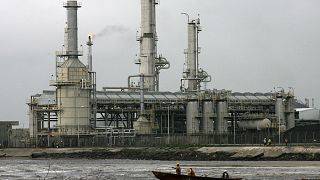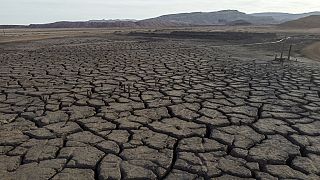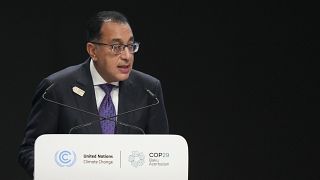Saudi Arabia
Saudi Arabia announced on Monday that it was extending its oil production cut by one million barrels a day to boost flagging prices, while Russia announced that it would cut its exports by 500,000 bpd in August.
These measures are the latest to be taken by major producers to stabilize prices in the face of high market volatility, lingering fallout from Russia's invasion of Ukraine and China's faltering economic recovery.
Saudi Arabia, the heavyweight of the Organization of the Petroleum Exporting Countries (OPEC), decided in early June to make a further production cut in the hope of boosting prices.
This voluntary reduction, which took effect this weekend, will continue into August and "may be extended" beyond that period, the kingdom's official news agency reported, citing a source in the Energy Ministry.
"The source confirmed that this additional voluntary reduction reinforces the precautionary measures taken by OPEC+ countries with the aim of supporting the stability and balance of oil markets," the agency added.
This decision maintains production in the oil-rich kingdom at around nine million barrels per day.
Announcing the cut last month following a meeting of oil producers, Saudi Energy Minister Prince Abdelaziz bin Salmane said it was potentially "extendable".
In April, several Opec+ members had decided to voluntarily cut their production by more than a million barrels a day, a surprise decision that briefly supported prices but did not lead to a sustained rise.
- Balance -
Shortly after Saudi Arabia's announcement on Monday, Russia said it would cut crude exports by 500,000 barrels a day in August.
"As part of efforts to balance the market, Russia will voluntarily cut deliveries to oil markets by 500,000 barrels a day in August by reducing exports by this amount," said Deputy Prime Minister Alexander Novak, quoted by Russian news agencies.
Russia had already announced in February 2023 a 500,000-barrel-per-day cut in crude oil production, a measure it said it would maintain until the end of 2024. The decision announced on Monday concerns exports, not production.
Since the start of the conflict in Ukraine, Moscow has redirected its energy exports from Europe to India and China.
The market reaction to Monday's announcements by Riyadh and Moscow, allies within Opec+, a collective of the main oil-exporting countries and their partners, was relatively muted.
Brent crude, the European benchmark, rose by 0.98% to $76.15 a barrel, while its American equivalent, WTI, was up 1.02% to $71.36 a barrel, a far cry from the highs recorded in March 2022 at the start of the conflict in Ukraine (close to $140).
Many analysts doubted, however, that Monday's announcements would have any lasting effect on prices.
"This is the usual automatic reaction to announcements of production cuts," said Chris Beauchamp, analyst at IG. "But given that this is not a coordinated decision by all OPEC+ members, it's hard to imagine that this is a real upward movement".
For Jamie Ingram, analyst at MEES, "Russia is unlikely to convince us that it will fully respect its latest commitments, but the most important thing is that this is a public commitment to support Saudi Arabia's market management strategy".
Since the start of the year, Brent crude has fallen by 11% and WTI by 7%.
Saudi Arabia, the world's largest oil exporter, is counting on higher oil prices to finance an ambitious reform program that could enable its economy to move away from fossil fuels.
Analysts estimate that the kingdom needs oil prices of $80 a barrel to balance its budget, well above the averages recorded in recent years.











01:12
Fears of environmental disaster following oil spill from Russian ships
00:54
Libya's National Oil Company declares force majeure after Zawiya Refinery suffers damage
00:57
Russia edges toward Taliban recognition
Go to video
Libyan protesters block oil valves demanding release of kidnapped General
00:53
OPEC extends oil output cuts by one month until the end of December
00:51
Turkey’s oil exploration in Somalia raises regional oncerns